
We were familiar with Jordan Hinson’s earlier work from her time on the series “Eureka,” but we had not seen a recent performance until about two weeks ago when we stumbled into an unexpected double feature of “Beyond The Sky” and “Breaking & Exiting,” which she also wrote and produced. The concept for “Beyond The Sky” intrigued us, especially with our Halloween antennae at full alert, so we gave it a watch.
While the film entertained us, it was Hinson’s performance and her way of commanding a scene that drew us in, so much so that we instantly tracked down “Breaking & Exiting.” She has since skyrocketed to the top of our “Favorite Actresses” list and with her fresh creative point of view working tirelessly behind the scenes as well, we are eagerly awaiting her next multi-hyphenated project.
We recently sat down with Hinson to discuss the current state of independent film, why this was such an important year in her journey as an artist, and how she’d go about spending a really big cardboard check.
TrunkSpace: One of the things that drew us to “Beyond The Sky” was that it was original, which seems to becoming increasingly more rare these days.
Hinson: I agree.
TrunkSpace: Is that part of the appeal for you, as a performer as well as a writer/producer, with going the more independent route? Is it exciting given that everything we’re seeing in theaters seems to be based on something, a remake of something, or a superhero something?
Hinson: Yeah, it definitely excited me more. I think that we’re so used to seeing alien-based films or science fiction movies where you’re waiting for this ultimate demise, like the ship comes down, but we see it through this girls’ eyes. She’s been abducted multiple times and it’s something she’s already experienced. That alone to me was really interesting. I also love that they brought in these Native American aspects to it, too – these ancient people who have this deal with others. They’ve been here before. I thought that was really intriguing, to me at least.
TrunkSpace: So many alien/UFO movies are about the aliens, but really, this is about the humans and human emotions like empathy.
Hinson: Yeah, I’ve been saying from the beginning, to me, this movie has always been about empathy and sympathizing with someone who is going through something that maybe you cannot understand. I think it is about humans and what they’re dealing with here because ultimately, it’s such a big topic that isn’t really talked about and I thought that it was really interesting that people will replace these terrible memories with something as out there as being abducted by aliens.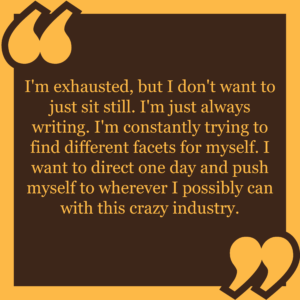
I like the whole movie. You don’t really know where it’s going to go and you don’t know if she’s suffering from false memory syndrome, if the people around her are, but they have this support group and it’s really interesting.
TrunkSpace: I read that you actually attended an alien abduction convention. How important was that to understanding Emily?
Hinson: It was really interesting for me. You want to go into these things being as open minded as you possibly can, even something with such strange subject matter, so we went in and it was this alien convention in New Mexico and there were a lot of people that had claimed they’d been abducted over the years. I talked to a lot of people and I know all of us – most of the cast did – and it’s easy to just put these people off like they’re crazy or that they want attention, but who am I to say what’s happened in someone else’s life? For me, it was a big lesson in empathy and understanding others, that’s for sure.
TrunkSpace: The material seemed like it could have been emotionally draining for you. Was Emily a difficult character to inhabit in terms of that heaviness?
Hinson: Yes and no. I think what I was feeling in the moment I put into her and I think that she was someone from the beginning who I just immediately understood and I wanted to understand on a deeper level. When I read her, she reads as this really strong, independent woman. She’s not this damsel in distress. She’s not looking for help. She’s looking for support from her friends and the people around her, but she’s not looking for someone to save her… like a man. I thought that that was just a really interesting approach.
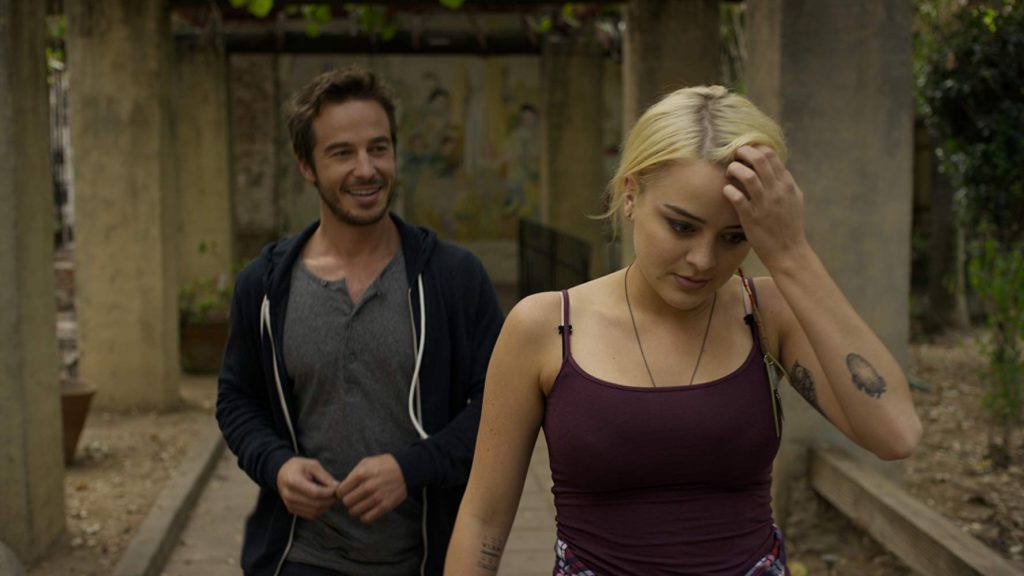
TrunkSpace: In terms of your career as a whole, was this an important year for you with “Breaking & Exiting” and getting involved more on the producing and writing side?
Hinson: Yeah, it was. It’s strange, because I’ve been so busy doing all of these things and trying to have all my irons in the fire that once everything came out, I was just overwhelmed. I executive produced another movie that’s coming out this year as well and so that one was being edited for so long and then reedited and then when I wrote “Breaking & Exiting.” I wanted to make it – just shoot it, almost gorilla style, almost for nothing and just get a bunch of people together, and there was all this interest in it. We made this real movie, with real distribution, and then all of a sudden, “Beyond The Sky” is coming out and another film I did, “Higher Power.” It’s been a whirlwind of a year. It started off, like in January, as, “What do I do with myself?” Two months later, it’s like, “I just wish I didn’t ask that.” It’s been an awesome experience. You never know what the end product is going to be and you never know how long these things are going to take to come out. With independent film it’s just so difficult to get a movie made. It really is.
TrunkSpace: Is it a bit of a leap of faith to work on an independent film not knowing when or if a project will see the light of day?
Hinson: It is. I think it’s even more nerve wracking to have written something and be producing it and have everything be riding on you and you’re there from the inception to the moment that it’s done in the editing room and to distributing. You never think about those things as an actor because you show up and do your job and you do it the best you possibly can and you leave with these little pieces of every character that you’ve played, but you try to move on to the next one. But when you’re producing and you’re such a part of it, it takes a while to get it out of your system and you just hope that people respond well to it. Either way, it’s a different experience. I think at least so far.
TrunkSpace: It’s got to be one of those things where you’re in the moment and you’re going, “Oh my God. I can’t sleep. This is so crazy.” And then you call wrap and you’re like, “I want to do that again!”
Hinson: Yeah. I’m exhausted, but I don’t want to just sit still. I’m just always writing. I’m constantly trying to find different facets for myself. I want to direct one day and push myself to wherever I possibly can with this crazy industry.
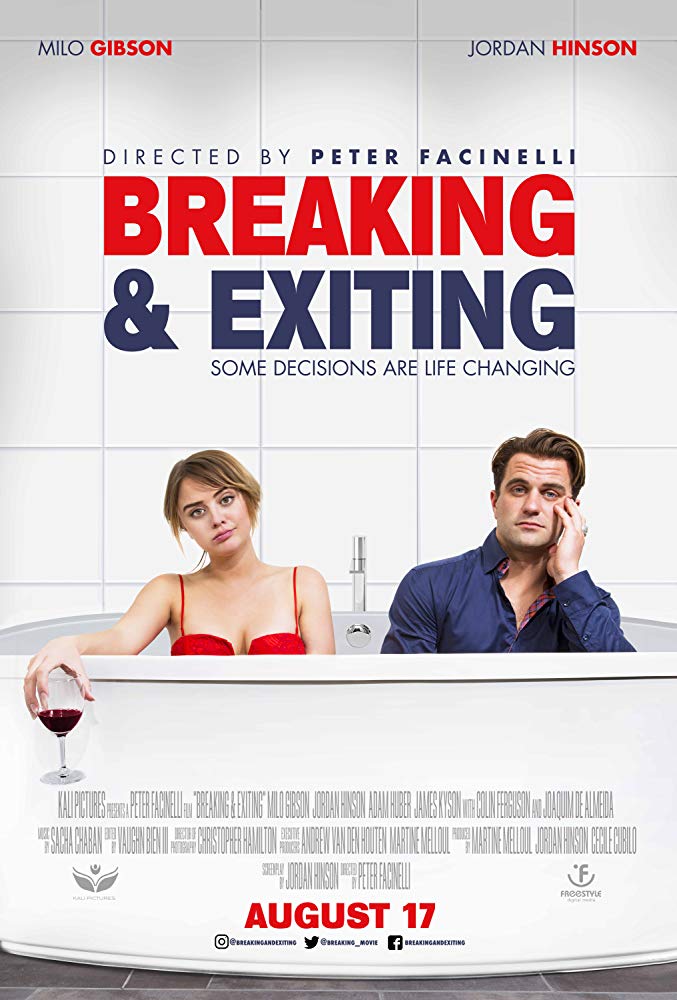 TrunkSpace: Is there a bit more of being able to control your own destiny when you’re also serving on the creative side and have the power to shape what you want to do next?
TrunkSpace: Is there a bit more of being able to control your own destiny when you’re also serving on the creative side and have the power to shape what you want to do next?
Hinson: Absolutely. I think that I’m such a specific type to play and I always have been. When I was 11, I was auditioning and people were telling me I was too old for things that were for a 13 year old. I have this old soul and a deep, raspy voice and now, I’m in my 20s and I have tattoos and my hair is purple. It’s a hard market to find something that specific, but I think that writing, for me, has always been a way to create my own content and when I’m auditioning, it seems like this endless pool of characters I’m never going to book. It’s a way for me to escape. What do I want to play? What’s something I’m good at? What’s my strong suit? What can I offer? I think that writing really helps you create something that you never would be able to find just in your day-to-day auditioning routine.
TrunkSpace: In that process, do your various brains ever come to blows? Does Producer Jordan ever butt heads with Writer Jordan about what is and isn’t possible to pull off?
Hinson: Well, you go through these things in your head before you make a movie. “I’ve seen someone do that, so I’m never going to do that,” and then you start realizing that you do have to save money sometimes or you do have to offer the role to someone who has a name that people recognize and then you realize that it’s not as easy as you thought it was. There is a game that has to be played in order to market a movie. With that said, I always try and stay incredibly true to myself and the film, especially, because to me, it always comes down to the script and the story of the character and if you have enough people who believe in it, you can probably take that paper and turn it to something on screen that is at least similar to what you wanted people to leave the theater with, or watch on iTunes, and leave them feeling a certain way.
TrunkSpace: Do you think the current climate, because there are so many different distribution platforms available, is a good moment for an artist like yourself who wants to be creating original content?
Hinson: I think so. I don’t think 10 years ago I could have made “Breaking & Exiting,” but I think that independent films are so important to so many people throughout the world and it’s just becoming that a lot more people want to make movies and they want to make TV shows and they’re finding other ways to do it. They go to a film studio who says, “I don’t want to make this,” and they’re like, “Great, I’m going to make it and put it out online.” I think it’s a great platform for people like me or anyone who wants to get into it because there’s people who are filming movies on their iPhones and putting them out there and they’re winning awards. I think it should always happen like this. I think that art is whatever you want to make it.
TrunkSpace: So if somebody came to you tomorrow and said, “Jordan, here’s a blank check. Go develop whatever project you want for yourself,” what type of project would you greenlight? Would you wear all of the hats – producing, writing, acting, etc.?
Hinson: I have a script right now that I wrote that I’m really excited about. It’s a dark comedy. It’s a higher budget then “Breaking & Exiting.” I’m in the process of getting it off the ground right now. It’s a character that I wrote for myself once again, but it’s something that I’m really excited to play. It would be really different for me and I would pursue the hell out of that. And I would love to eventually act in something where I could have a co-director and work with someone in that way, so when I’m working, I could have someone helping to direct my acting as well. I think first and foremost, I would go and find a lead actor that I want, a director that I want, and… if you have a blank check, the possibilities are limitless. (Laughter)
TrunkSpace: And it’s one of those giant Publisher’s Clearing House-style checks too!
Hinson: (Laughter) Yeah, that’s the one I want, the cardboard one.
“Breaking & Exiting” is available on Digital HD, including iTunes.
“Beyond The Sky” is available on Digital HD, including iTunes.


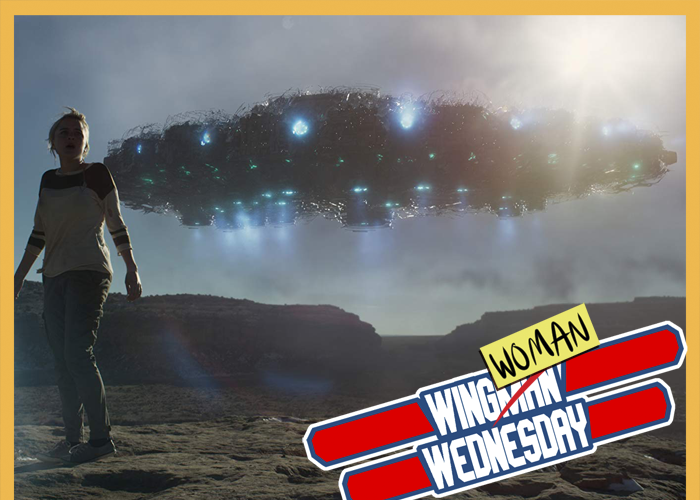
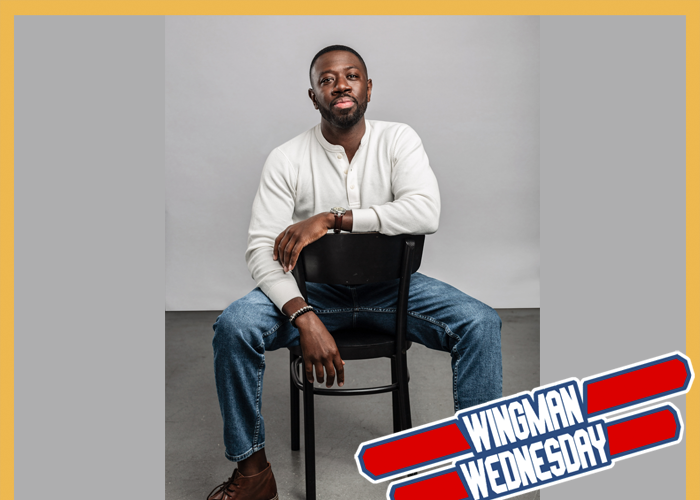
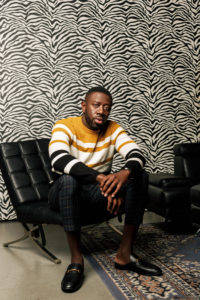
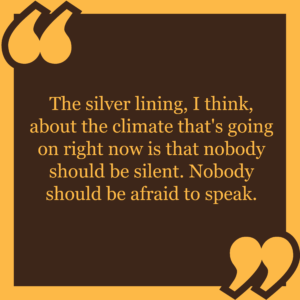
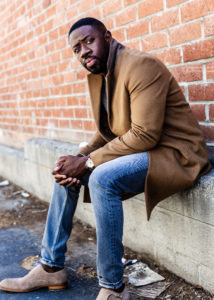
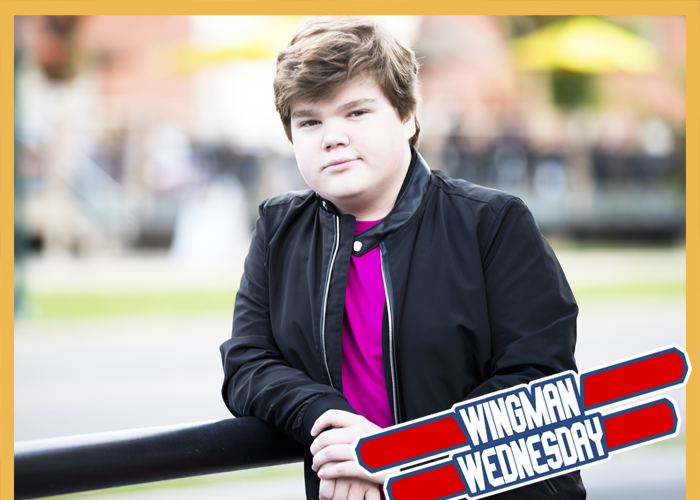
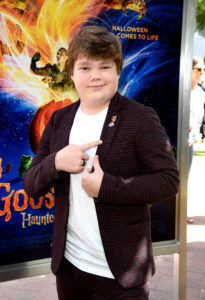
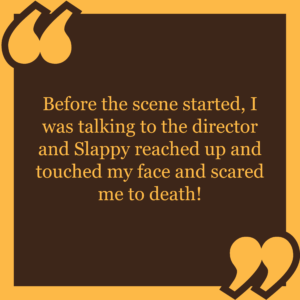 your acting, when you’re having to imagine a monster that isn’t actually there?
your acting, when you’re having to imagine a monster that isn’t actually there?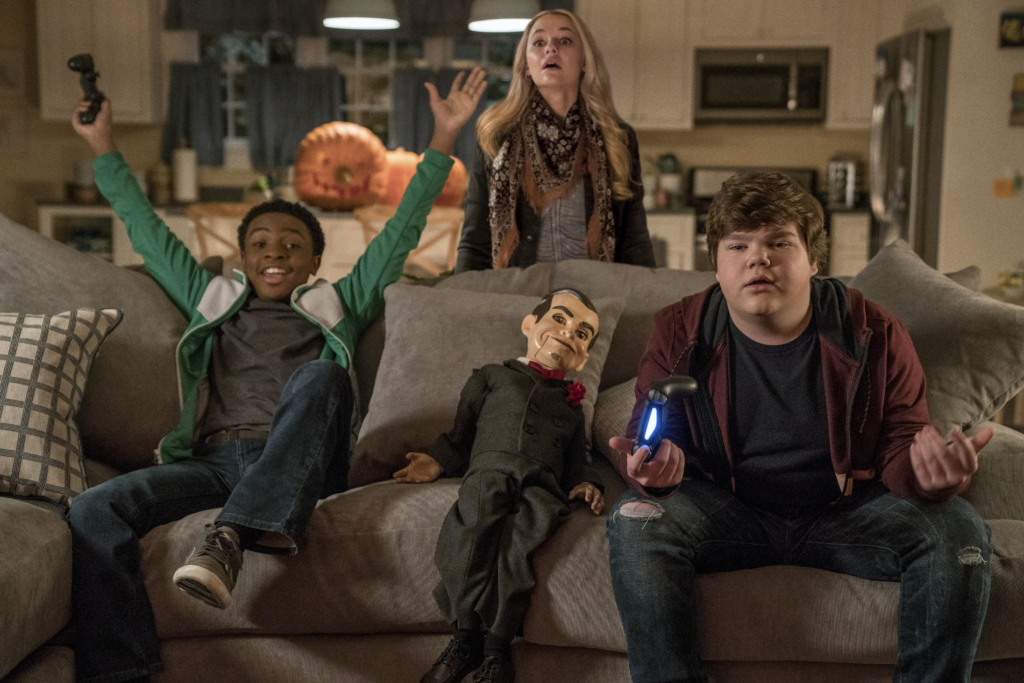
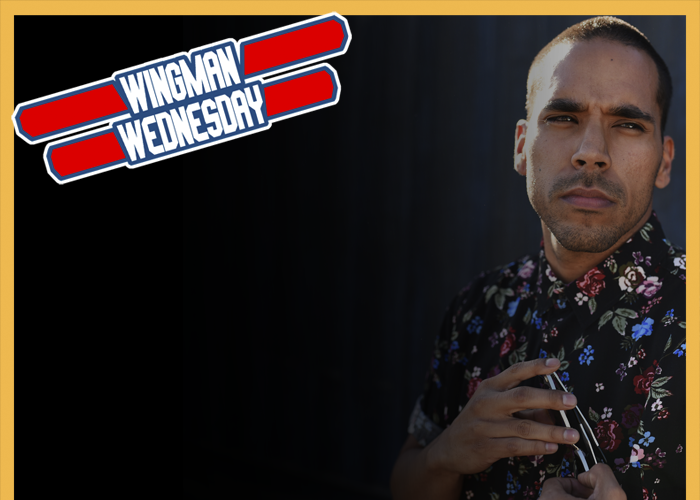
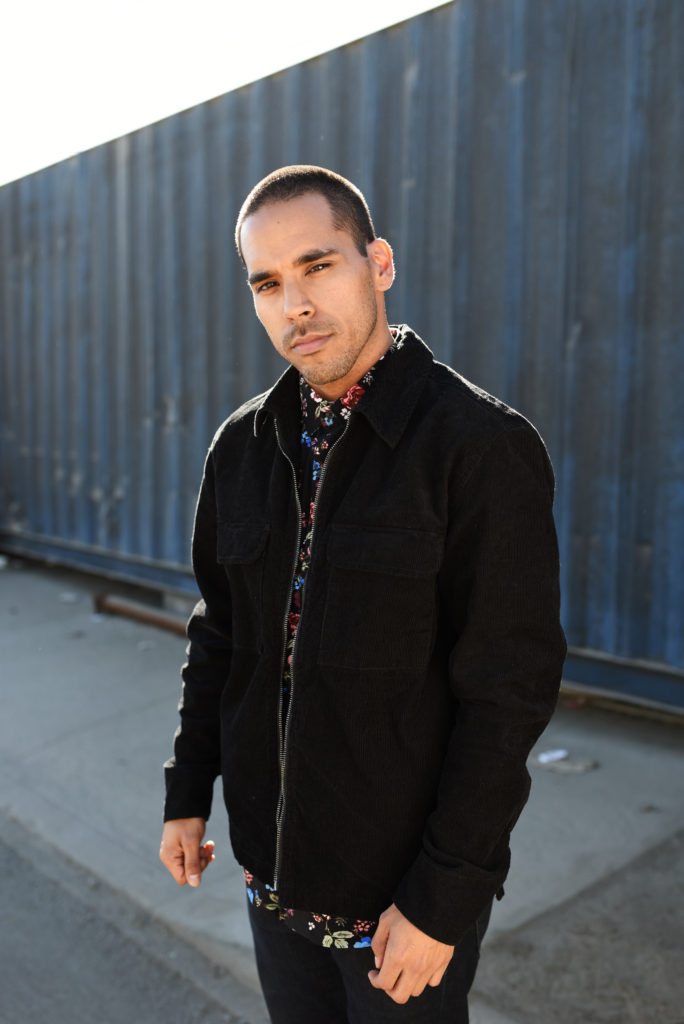
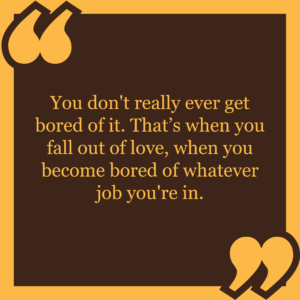 has to be a crazy exciting time right now.
has to be a crazy exciting time right now.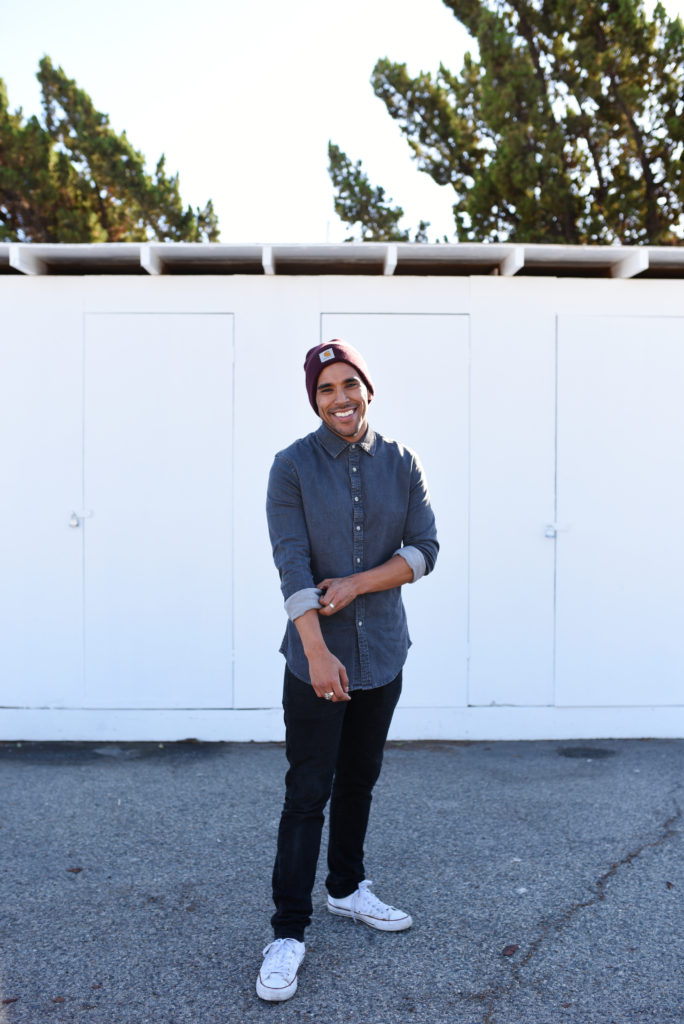
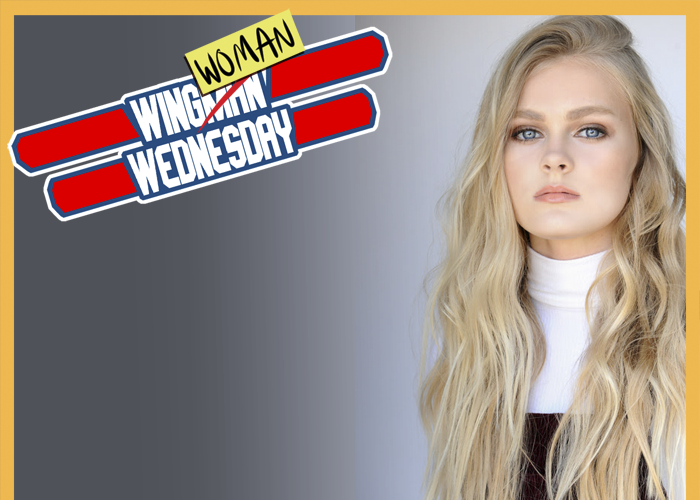
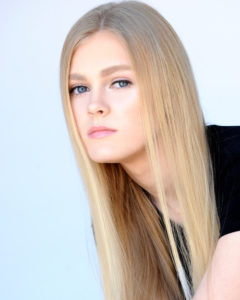
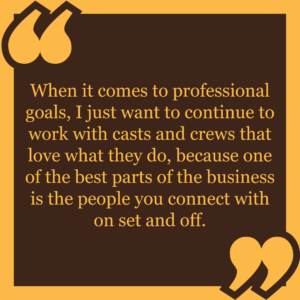
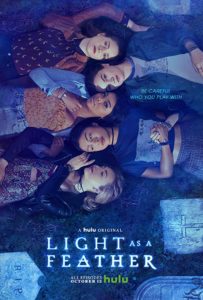 TrunkSpace: What job have you learned the most from, the one that you find yourself still applying the lessons from, even with the jobs you tackle today?
TrunkSpace: What job have you learned the most from, the one that you find yourself still applying the lessons from, even with the jobs you tackle today?
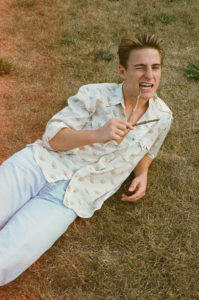
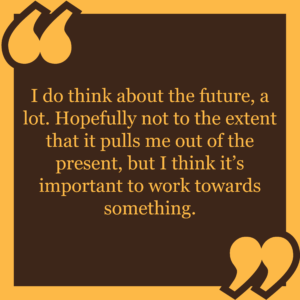 and positioning on things like vigilantism changed, what was that character adjustment like for you? It definitely feels like he’s in a place now that is much different from when you started your journey with him.
and positioning on things like vigilantism changed, what was that character adjustment like for you? It definitely feels like he’s in a place now that is much different from when you started your journey with him.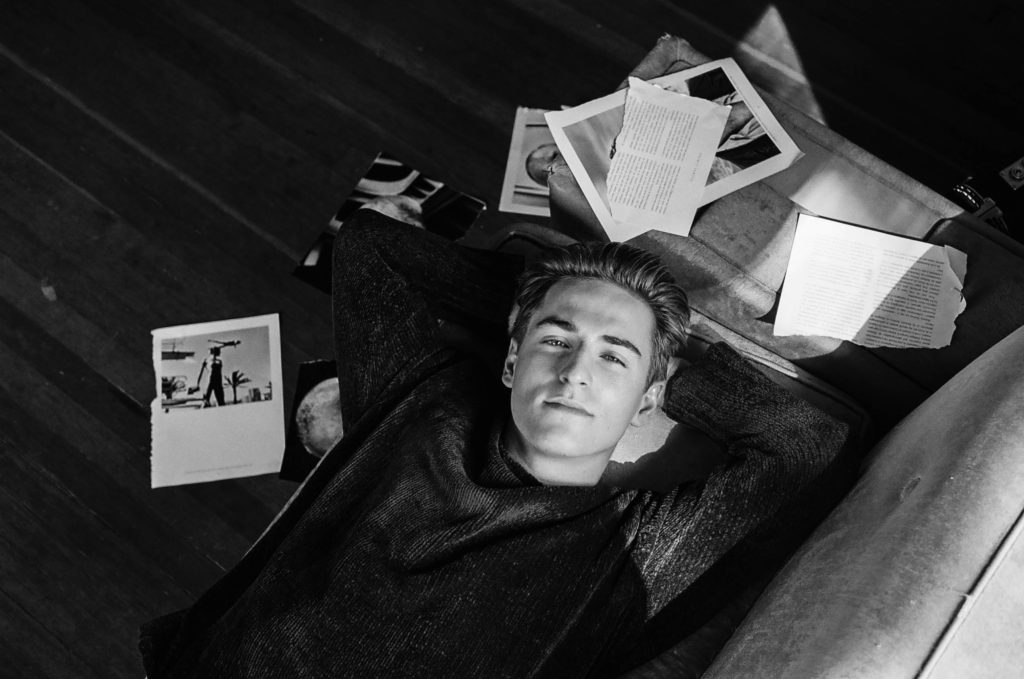
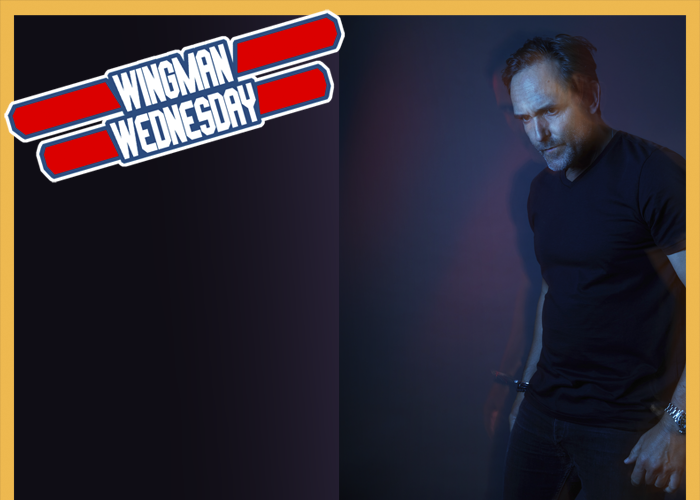
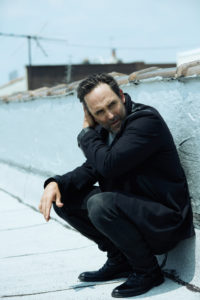
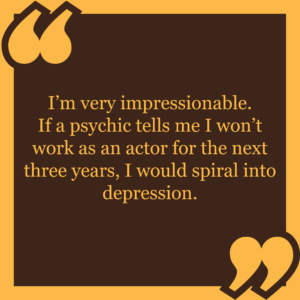 series. What was it about him that you felt needed the research to get right, and what was the most difficult aspect of that journey?
series. What was it about him that you felt needed the research to get right, and what was the most difficult aspect of that journey?

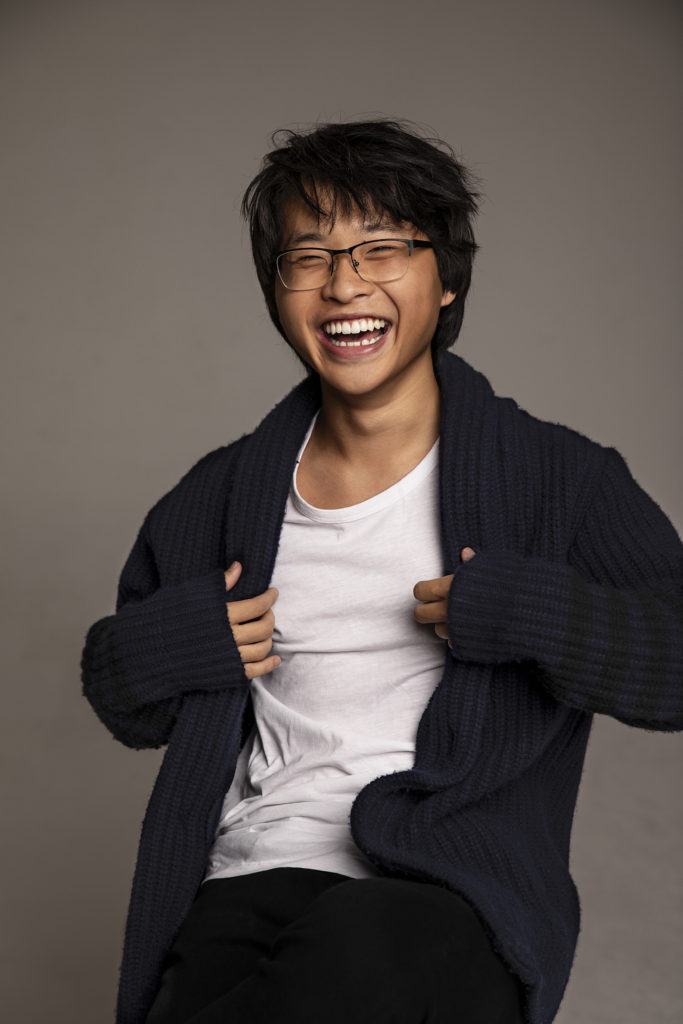
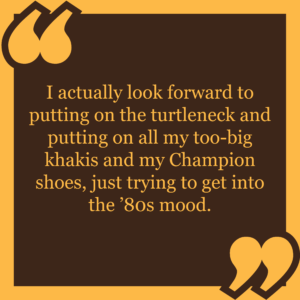
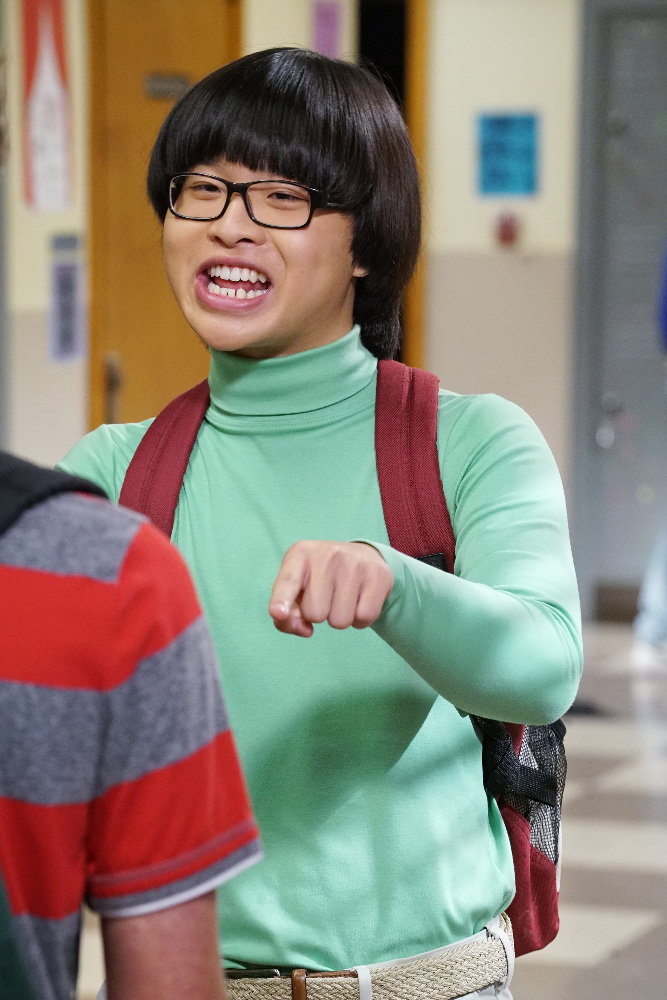
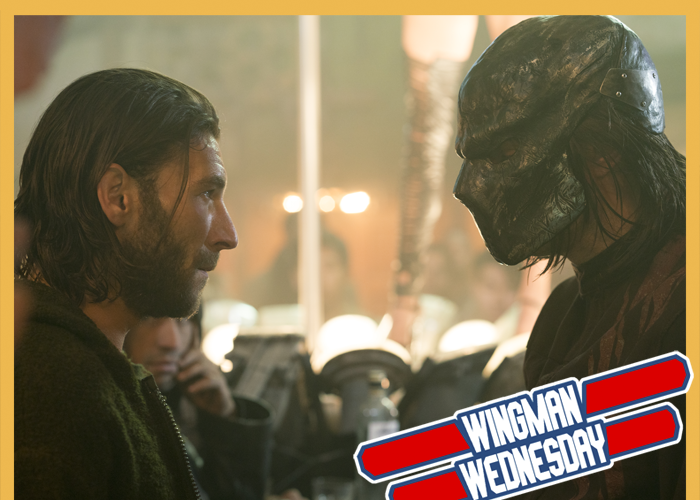
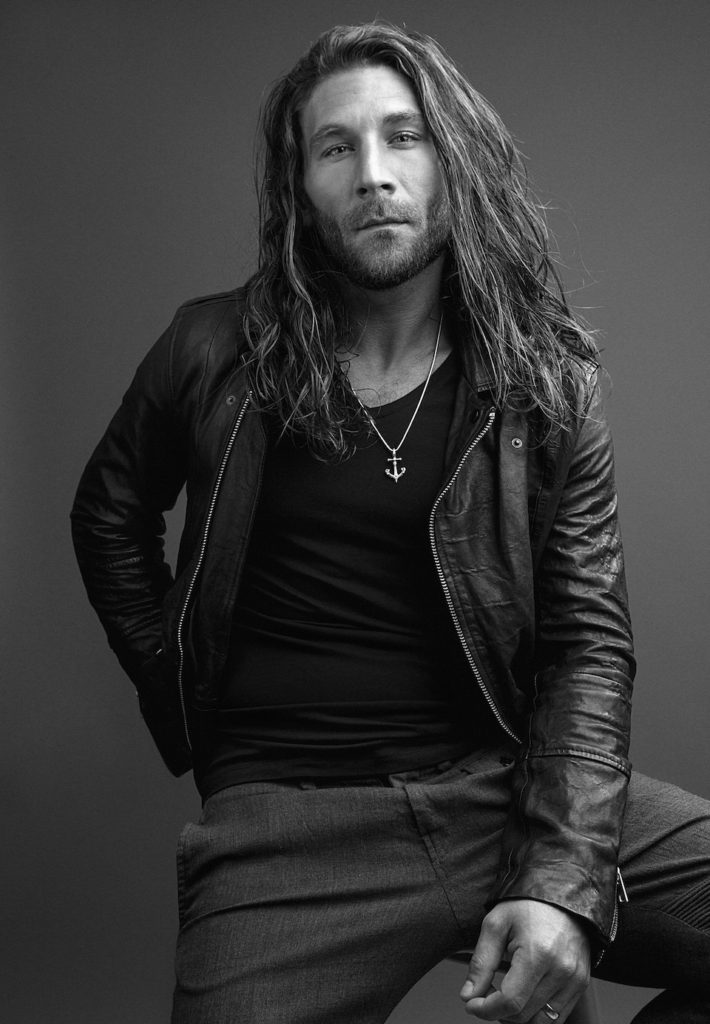 On your mark. Get set. Let’s go!
On your mark. Get set. Let’s go!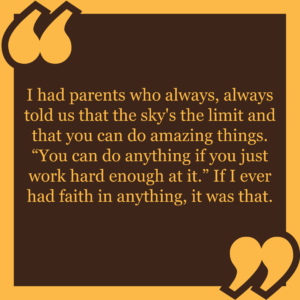 character I was like, “Oh, this is like Kurt Russell in ‘Escape from New York’ or something.” That was what I saw. Don (Michael Paul) explained to me that they were actually building the cars and they were going to do everything practical and not rely upon the visual effects and all that. That’s when I knew it was going to be awesome, or at least I hoped that it could be. I’ve seen it, and I think that really shines through, so I think the original fans will dig those elements of it.
character I was like, “Oh, this is like Kurt Russell in ‘Escape from New York’ or something.” That was what I saw. Don (Michael Paul) explained to me that they were actually building the cars and they were going to do everything practical and not rely upon the visual effects and all that. That’s when I knew it was going to be awesome, or at least I hoped that it could be. I’ve seen it, and I think that really shines through, so I think the original fans will dig those elements of it.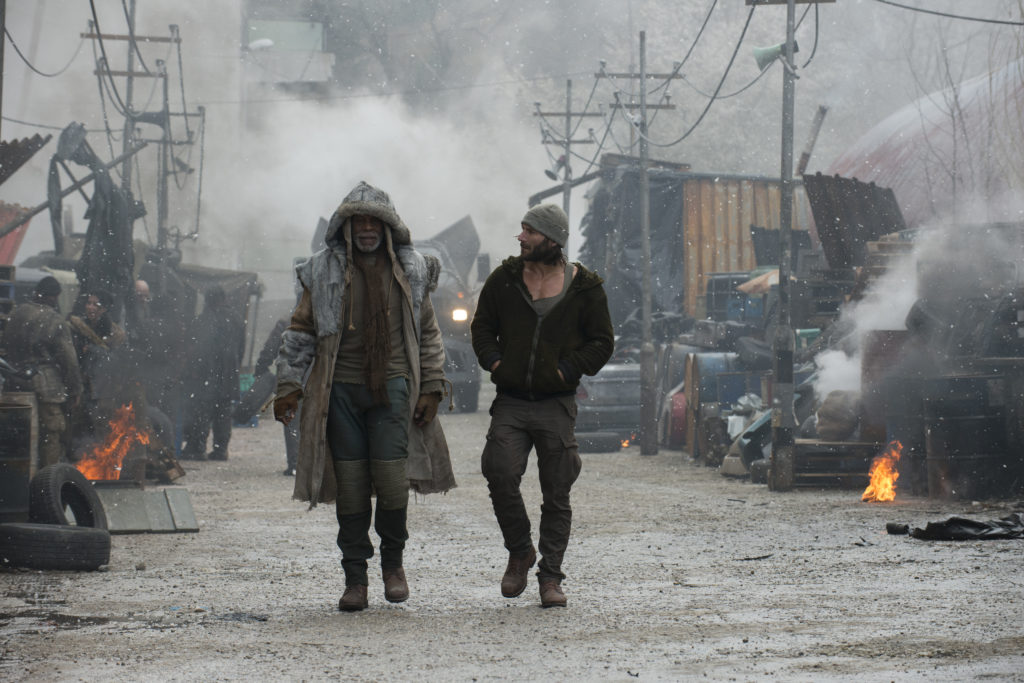

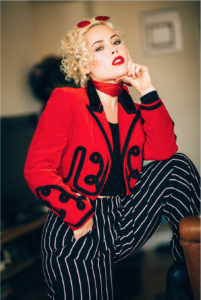 A modern day Marilyn Monroe with a gritty edge, Rebecca Knox is an actress who demands your attention by the way she commands her space in any given scene. Memorable by making the most of every moment on-camera, her gaze itself could one day win an Emmy thanks to the way her eyes reveal so much about those she is inhabiting. Currently the New York native can be seen as inmate Tina Swope in Season 6 of “Orange Is the New Black,” available now on Netflix.
A modern day Marilyn Monroe with a gritty edge, Rebecca Knox is an actress who demands your attention by the way she commands her space in any given scene. Memorable by making the most of every moment on-camera, her gaze itself could one day win an Emmy thanks to the way her eyes reveal so much about those she is inhabiting. Currently the New York native can be seen as inmate Tina Swope in Season 6 of “Orange Is the New Black,” available now on Netflix.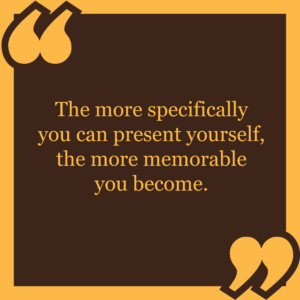 handle the experience emotionally?
handle the experience emotionally? TrunkSpace: You have such a memorable look. As soon as we caught sight of you on camera you were etched into our brains and we thought, “I WANT TO KNOW MORE ABOUT HER!” That is not something you can quantify. Do you think that personal branding is important for actors to consider and is it something that you have worked to achieve within your own career?
TrunkSpace: You have such a memorable look. As soon as we caught sight of you on camera you were etched into our brains and we thought, “I WANT TO KNOW MORE ABOUT HER!” That is not something you can quantify. Do you think that personal branding is important for actors to consider and is it something that you have worked to achieve within your own career?